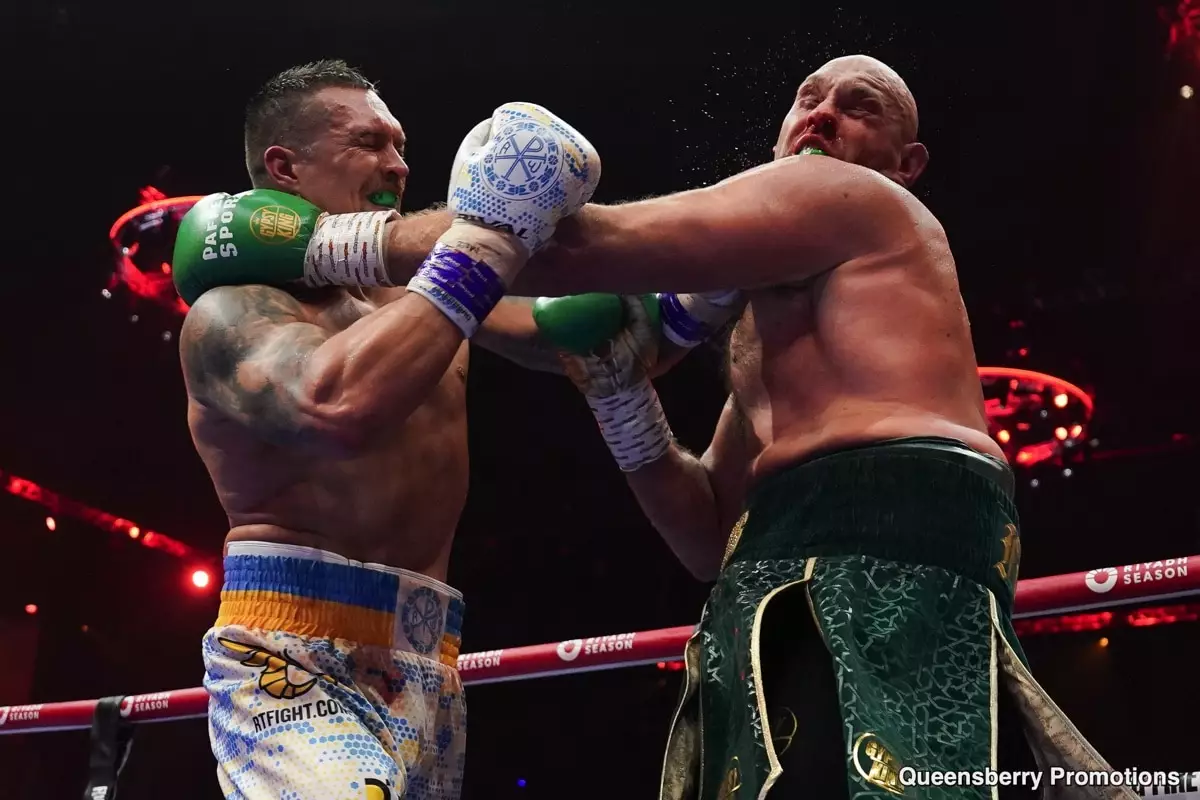The world of heavyweight boxing is set to witness an exhilarating event this December 21, as reigning champion Oleksandr Usyk prepares to defend his title against former champion Tyson Fury in a highly anticipated rematch. Amid the buildup, promoter Frank Warren has voiced his unwavering support for Fury, sharing insights into the psychological and strategic dimensions of the upcoming bout. With stakes so high, this fight not only represents a chance for Fury to reclaim his title but also serves as a pivotal moment for the heavyweight division as a whole.
In recent comments, Warren expressed his confidence in Fury’s ability to bounce back from their previous encounter, where he suffered a tight defeat. “I genuinely believe Tyson will beat Usyk in December,” Warren stated, highlighting the improvements Fury is expected to make. Indeed, the first match demonstrated Fury’s capacity to contend with Usyk’s elite boxing skills. His showboating, however, may have cost him crucial points, and this time around, it is imperative that Fury approaches the fight with complete focus and urgency from the outset.
As both fighters prepare to enter the ring, the mental game becomes just as important as physical preparation. The ability to not only withstand but to adapt to Usyk’s advanced boxing techniques will be critical for Fury. He will need to cut off the ring, avoid prolonged exchanges that could favor Usyk, and unleash power punches at strategic moments to shift momentum in his favor.
Should Fury achieve victory, a third bout against Usyk is almost a foregone conclusion, as a trilogy fight appears to be embedded within their contractual obligations. This potential rematch would escalate the rivalry, with both fighters striving to assert their dominance in the heavyweight arena. However, the shadow of what happens if Fury falters again is equally ominous. Warren delves into the aftermath of a potential defeat, suggesting that Fury would continue to box, largely due to his mental health needs and his passion for the sport.
Fury’s career decisions post-December hold significant ramifications not only for him but also for British boxing fans eagerly awaiting other potential matchups. A bout against current IBF heavyweight champion, Daniel Dubois, lingers on the horizon, although that scenario raises complex questions about navigating the dynamics of promoting two fighters whom Warren has supported for over a decade.
While the fight against Dubois could be intriguing, few matchups elicit as much excitement as a potential clash between Tyson Fury and Anthony Joshua. Even with Joshua’s recent struggles in the ring, the allure of an all-British heavyweight showdown remains potent. Warren acknowledges this possibility, stating, “the Joshua fight will still be there,” a sentiment that echoes across the boxing community. Public interest in such a matchup persists, making it an enticing proposition for fans and promoters alike regardless of Fury’s outcome against Usyk.
The prospective financial backing from Saudi investors looking to host top-tier boxing events further complicates the narrative. The infrastructure already in place for high-stakes encounters could mean that a Fury vs. Joshua fight in the Middle Eastern market is not just a pipe dream but a viable option for the near future.
All eyes will undoubtedly shift towards Riyadh on December 21, where the heavyweight division’s future could pivot dramatically. The rematch, steeped in personal stakes and professional implications, not only pits two of boxing’s finest against one another but also showcases the evolution of the sport itself. The narrative surrounding Fury—his resilience, mental health, and legacy—will inform how the match is perceived and could shape his path going forward.
Fans, analysts, and enthusiasts eagerly await the explosive action that is bound to ensue. The heavyweight title has become a hotly contested prize that commands respect and admiration, and with the rivalry between Usyk and Fury reigniting, the boxing world is poised for what could be a monumental night in December. Whatever the outcome, one can be sure that the implications will be felt long after the final bell rings.

